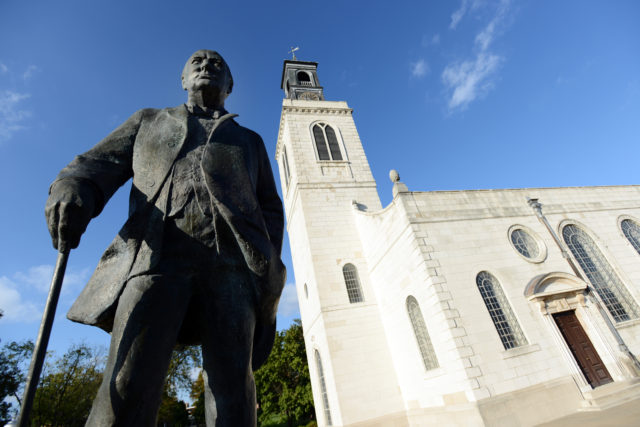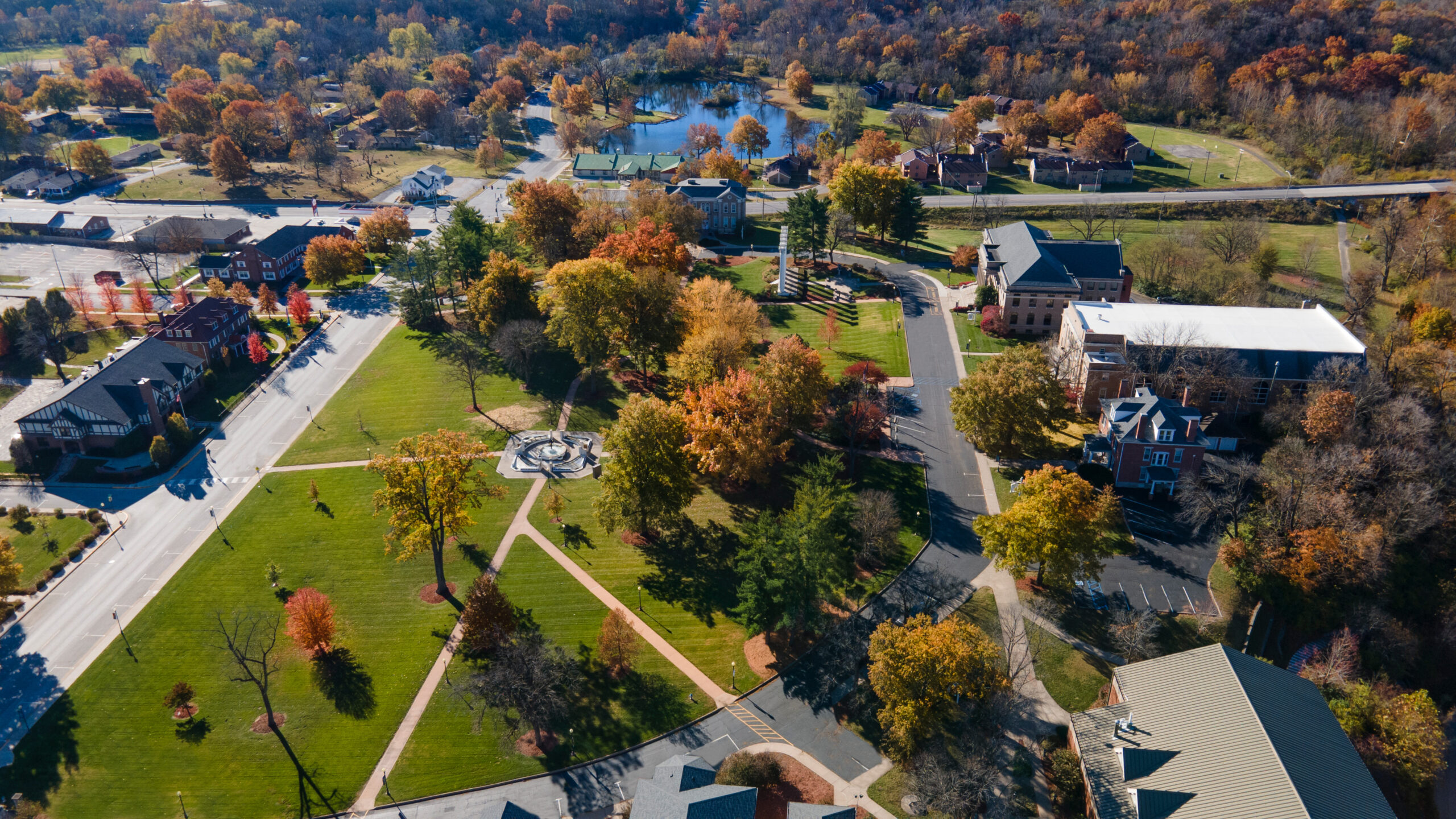BY NANCY CARVER, CHURCHILL FELLOW AND ST. LOUIS AUTHOR
Today, we hear much about supposed Russian interference in our elections and government, but who would suppose that the government of the Soviet Union was once interested in Fulton, Missouri?
The newspaper PRAVDA (The Truth) served for many years as the official organ of the Communist Party of the Soviet Union. When the Soviet Union broke up in 1991, the newspaper’s readership plummeted. But in the 1960s, when it was still going strong, PRAVDA chose an unusual target to attack, The Church of St. Mary the Virgin, Aldermanbury in Fulton, Missouri.
Such an attack seems ludicrous; however, in the 1960s the paper’s reputation, according to critics, seemed to rest on its obsequious devotion to the party and total disregard for the truth. PRAVDA erred on the side of showing the strength of the Soviet Union and the weakness of its enemies.
In a December 26, 1962 article entitled, “The Stones are Groaning,” by columnist V. Maevsky, the newspaper maintained that the English appeared very weak in its decision to relocate its heritage church to the small city of Fulton, Missouri. In fact, PRAVDA characterized the decision as one that England made strictly for money.
PRAVDA did offer several alternate reasons, though none were particularly exciting. It noted that “Judge George Jeffreys, who sent hundreds of people to prison” was buried there as were several friends of Shakespeare, though the First Folio of Shakespeare was “sold long ago to the United States,” yet another reference to money.
It might seem that the Russians did not understand the true purpose of the relocation. The article revealed that they did. In it, they asked, “Do you remember the notorious Fulton speech of Winston Churchill? That one in which was announced the Cold War and which legalized the sad role of England as a junior partner.”
“Yes, this speech was delivered at Westminster College. It was the beginning of the sell-out of England; there, where are sold entire regions of the country for American Military bases, the sale of a Cathedral is only a trifle.”
And there it was — the truth behind the sarcasm. Russia heard the speech and became unnerved by it. They worried that both England and America might spoil their future expansion plans. The idea must have made them shudder, or as the article suggests, groan.
While this article was the first in which PRAVDA directly attacked the relocation of the church, it was not the first article in response to Churchill’s Sinews of Peace (“Iron Curtain”) speech. In late March 1946, PRAVDA interviewed Joseph Stalin to get his response to the speech. He referred to the speech as “a dangerous act, calculated to sow the seeds of discord among the allied states and to cause difficulty in their collaboration.” He further referred to Churchill as a “warmonger” who is in the United States take up his cause.
Most of Stalin’s response rests on three key elements. One, that the English used the same racial strategy that Germany employed by seeming to imply that only English speaking nations are “full fledged nations” that can “dominate other nations.” Stalin’s response implies that if the Soviet Union refuses to accept that assumption, war is inevitable. According to Stalin, Churchill failed to understand that the rest of the world would not accept a new slavery and domination by a nation, English speaking or not, after their experience in the war with Germany.
Secondly, the response included the Soviet Union’s description of five long years fighting Germany, which made the union unwilling to undergo another threat to its independence. Stalin bristled at the notion that the Soviet Union had to concede anything to Churchill. For his part, Stalin considered Churchill’s depiction of an Iron Curtain slander and referenced the agreement at Potsdam that gave four “states” decision-making authority in Vienna and Berlin. Stalin would not admit to expansionist plans but did aver that communism’s growth was a completely natural phenomenon in reaction to the previous fascist rule of Europe. Stalin believed that others rightly viewed Communists as “trustworthy, brave, self-sacrificing fighters against the fascist regime, for the freedom of the people.”
In a further renunciation of Churchill’s claims of totalitarianism in the countries of Poland, Rumania, Yugoslavia, Bulgaria and Russia, Stalin asserted that the countries had several forms of government whereas England was ruled by only one, the “Laborites” that deprived others the right to have input. He went on to say that Churchill’s idea of democracy was to let “fascist hide-outs” take control of the four countries.
Finally, Stalin highlighted the great toll that the Soviet Union experienced fighting the Germans. He elaborated by stating that the Soviet Union lost seven million people in battle while others were sent to German forced labor camps. His interpretation of Communist expansion was that it resulted from the “inclination…of governments” to be loyal to a group that it perceived as peaceful. Above all, he insists that “the sacrifices” made by the Soviet Union were gratefully acknowledged by other nations, if not by England and the United States.
Stalin and PRAVDA knew better than the people in Washington, D.C. how to spin a tale by entwining some facts with distortions of truth. If not for Churchill’s speech, the Soviet Union undoubtedly could have proceeded unchallenged in its attempts to spread Communism around the world. While age may make St. Mary’s church stones groan, the threat of communism does not.
Make plans to visit this historic landmark and home of America’s National Churchill Museum for a celebration of the 50th anniversary of its restoration May 3-5 during Churchill Weekend at Westminster.
Follow America’s National Churchill Museum on social media and online at:
Facebook: National Churchill Museum
Twitter: @churchillmuseum
Instagram: @national_churchill_museum
Website: https://www.nationalchurchillmuseum.org
Sarah Rummel Backer is the Director of Media Relations and Senior Writer at Westminster College in Fulton, Missouri. A proud Westminster graduate, Sarah has more than 20 years of experience in marketing and strategic communications in the areas of higher education, medicine, agriculture, and the private business sector.






